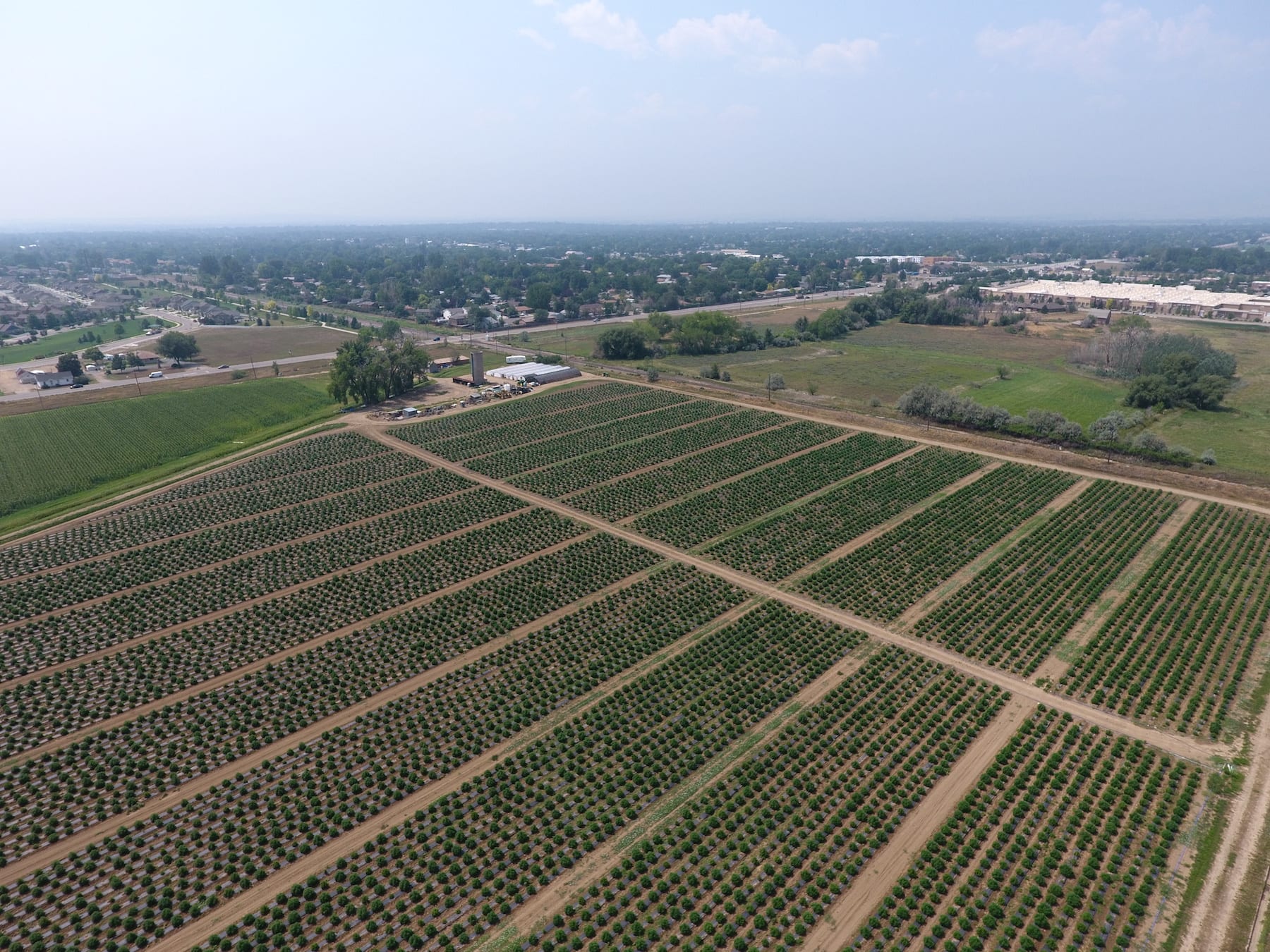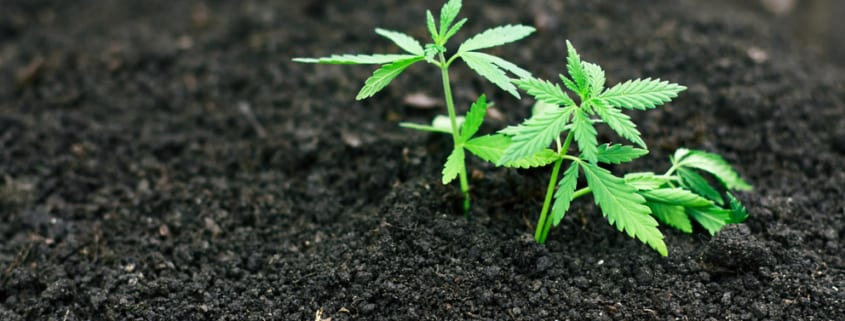Every farmer knows that soil can make the difference between a bumper crop and a failed harvest. That’s why it’s so important for farmers to take the time to test, prepare, and manage their soil throughout a crop’s growing season. Though hemp has a reputation for growing easily, that doesn’t mean you can ignore your soil. While hemp can grow in many different regions and climates, soil matters. The right soil for hemp can dramatically increase the health of your hemp plants and your yields of CBD or CBG.
Fortunately, farmers with the right know-how and a reliable soil plan can turn most types of soil into great hemp soil. What kind of soil does hemp grow best in? Let’s find out.
The Best Soil for Industrial Hemp
Before we discuss the best soil to grow hemp, it’s important to recognize that farming industrial hemp in the United States is still a relatively new experience. Only since the passage of the 2014 and 2018 Farm Bills have farmers in the modern era been allowed to grow hemp. That means we’re all still working to figure out best practices, including the best soil for growing hemp. We encourage you to take our suggestions as just that: suggestions. Use them as a basis and start experimenting with your own soil and crop.

With that out of the way, here’s what we can tell you about the best hemp soil conditions. Hemp loves to grow in loose, well-drained, and loamy soil with a pH between 6.0 and 7.5. It also prefers deep soil that is rich in organic matter.
Don’t have well-aerated, loamy soil? Not a problem. We’ve found that hemp can also grow well in clay soil that is well-drained, and even sandy soil as long as you give extra focus to irrigation and fertilization.
It’s also imperative that your soil doesn’t include heavy metals. Hemp is famous for its “bioaccumulative” properties, meaning that it can absorb many properties from soil, including, according to Hemp Industry Daily, “radioactive elements, heavy metals, pesticides, herbicides, fungicides, explosives, and fuel.” This makes hemp an excellent option to clean up abused soil (hemp has even been planted around Chernobyl), but it can be very problematic if your soil contains dangerous substances!
How do you know if your fields have the best soil to grow hemp? More importantly, if your hemp soil conditions are less than ideal, how can you make over your soil to improve your hemp harvest? Fortunately, farmers have a lot of tools and options to improve their soil for hemp.
Test Your Soil
Before you even consider growing your first hemp crop (or really any cash crop), you must perform soil testing for hemp so you can understand what you are working with. A soil test will give you the pH of your soil as well as the nutrient balance of the soil. You’ll see where your soil is deficient and where you may have an overabundance of certain elements that might hurt your crop.
It’s a good idea to test your soil several months before you plan on planting, so you have time to perform your soil prep.
Create an Irrigation and Soil Nutrient Plan
Your soil test will give you the information you need to create an irrigation and nutrient plan for your fields. This plan should start with steps to prepare your field before planting, including addressing any nutrient deficiencies before you add your hemp seeds or starts.
Bringing your soil up to health is only the beginning: Your plan should also include steps to maintain the health of your hemp soil throughout your growing season.
The second part of the plan will feature your irrigation strategy. Remember that hemp plants need well-drained soil. Overwatering hemp plants is a common and disastrous mistake. Our research has found that drip irrigation, pivot irrigation, and floor irrigation can all work well with a hemp crop.
Prepare Your Soil for Hemp
Most farmers need to perform some interventions to make their soil more conducive to hemp. If you are starting a brand-new field, you will likely have to do more work than on a field you’ve been working for many years. Your soil test will guide you on how to prepare your soil. Your goal should be to build the health of your entire field ecosystem.
Here are a few quick suggestions on the specific nutrients in your soil:
Nitrogen
Hemp is all about the nitrogen. If your soil testing for hemp shows that your soil is lacking in nitrogen, don’t be stingy in adding plenty of nitrogen to your soil before you plant. The Pennsylvania State University Cooperative Extension suggests adding 150 pounds of nitrogen for every 1,500 pounds of yield. Again, test, observe, and experiment to find the right amount for you.
Phosphorus
Farmers growing hemp for CBD or CBG will want to give their crop plenty of potassium to support good flower growth. (The majority of a hemp plant’s resin is produced in the flower of the female plant.) However, be careful not to go overboard with the phosphorus; consider adding 50 to 80 pounds per acre.
Boron
Not all soil will need extra boron, but it’s still important to check your soil test to determine if you are boron deficient. It’s also a good idea to perform a leaf analysis at the midpoint in your growing season to check if your plants might need additional boron.
Fertilizer
Hemp does best in soil that contains lots of nutritious organic matter. That could be compost, fish emulsion, kelp extract, or whatever organic matter you prefer. Just make sure to check the nutrients of your fertilizer to make sure you aren’t adding too much of a specific nutrient to your soil. For example, some compost includes high levels of potassium, and too high of a level can make it harder for your hemp plants to absorb much-needed calcium. Most compost suppliers can provide a nutritional analysis of their compost. This article from Cannabis Business Times provides a suggested fertilizer schedule for hemp.
Invest in Hemp Seeds with Good Genetics
No farmer’s hemp soil will ever be perfect, which is why you can increase your chances of a good harvest by investing in hemp seeds with strong, reliable genetics. Many of today’s top hemp seed strains have been bred to be robust and to withstand challenging weather conditions and imperfect soil conditions. Our Berry Blossom strain, for example, is grown in nearly every state in the US and is prized for its toughness. Our Merlot strain is also noteworthy for its robust constitution. (Learn more about how hemp seed strains can make or break your hemp farm.)
Hire an Agronomist
How do you interpret your soil test, and how do you use it to develop an irrigation and nutrient plan for your fields? You don’t have to! One of the best decisions you can make as you begin planning your future hemp crop is to hire an agronomist. These “crop doctors” can guide you through every step of preparing your field for planting hemp, including developing the best soil for industrial hemp. For example, an agronomist can suggest the right soil test, then use those results to build an irrigation and nutrient plan for you. They can offer specific instructions on what nutrients to add to your soil as well as other interventions to improve the quality of your soil. Agronomists also keep track of the latest and greatest research and can give you the most up-to-date advice on improving your hemp yield.
Growing hemp is complex, and the margins between financial success and failure are thin. Give yourself an extra edge by working with an agronomist. (You can also help yourself by reviewing our Hemp Farming 101 infographic.)
Be Patient
You cannot change your soil overnight even if you use the best-practices suggested in this article or the recommendations of your agronomist. Accept the fact that it can take years to shift the structure and nutrient composition of your fields, especially if you are working with a new field. Your agronomist can provide you with a multi-year strategy that will gradually shift your soil over time. Put in the work, and it will pay off.
Another aspect of being patient is to recognize that even the best soil to grow hemp won’t stay that way if you ignore it. Your soil constantly changes, especially as you rotate your fields and plant different crops. Test your soil regularly and continually revise your soil management strategy based on the results. Your soil is just like your crops—it needs regular care and attention!
Keep Experimenting
Your soil is different in ways big and small from the soil of other hemp farmers, which is why your results will vary from theirs. Only through experience and experimentation will you learn how to create the best hemp soil conditions for your fields. Don’t be afraid to test different levels of nutrients as well as different CBD hemp strains or CBG hemp strains to see how you can get the largest and highest quality yield. Your agronomist can help you evaluate your results and suggest other factors to test in the future.
Have More Hemp Soil Questions?
We could only scratch the surface on the topic of soil for hemp in this article. If you have more questions on soil testing for hemp or which hemp strains do best in which kinds of soil, we’d love to answer them! Contact us today.


 High Grade Hemp Seed
High Grade Hemp Seed